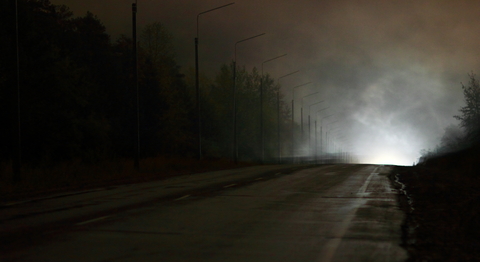
Why The Slippery Slope Can’t Predict The Future
By Jesse Jost
A look around at the present trends we are seeing in North America does not give a Christian much reason for optimism. In the past year we have seen numerous freedoms disappear. Churches are facing draconian restrictions and fines for trying to obey our biblical mandates. Censorship of conservative ideas is becoming widespread.
Society as a whole seems to be embracing ideas that run contrary to sacred core biblical values. It feels like faithfully preaching biblical Christianity is becoming cultural suicide.
I have seen alarming parallels between what is happening now to what happened in other nations as they slid into dictatorships and police states. Is history bound to repeat itself? Have the restrictions and freedoms lost in the name of this pandemic shoved us down the slippery slope toward a totalitarian dystopia?
The idea of a slippery slope, or the idea that if we grant one thing it will inevitably lead to another thing, is a powerful rhetorical device. “If we let government dictate masks for the church, then we will also allow the government to stop our preaching the whole Bible.” “If we relinquish one freedom, where will it end?”
The slippery slope concept gives us pause to consider the consequences of our ideas and actions. It is valuable to look at examples from history where one set of actions led to another.
However, we make a fatal mental mistake when we try to use the slippery slope idea to predict the future.
The slippery slope idea only looks at one set of forces pushing things in a certain direction. But it can’t predict the future because there are always other forces that arise and push things in a different direction.
At one time, slave-trading of Africans was spreading around the world at an alarming rate; we were on the slippery slope to human slavery becoming a world wide problem. Then the abolitionists became an opposing force and grew in power and influence until human slavery was nearly eradicated from the globe (until it was forced underground and took new forms.)
A slippery slope goes down hill until it doesn’t. It is why we can’t use historical examples from other times and places to predict the future. There will always be complex and opposing factors that are different this time around that will affect the next outcome.
We need to heed the warnings from history, but we must not become paralyzed by them. Today is different. There are new possibilities and opportunities. The future depends on the choices we make today.
Even God himself, who knows the future, reminds us in Jeremiah 18 when He gives a pronouncement of judgement, that if the people repent and turn from their wicked ways, He will change course and prevent the judgement and bring healing instead. Conversely, when God has prophesied prosperity on a nation, if they forget God and turn to evil and oppression, then He will revoke the blessing as well.
Two ideas are crystal clear in the bible:
The first is that the human heart is prone to wander. The bible is very bleak when it talks about how corrupt human nature is. We are forgetful, bitter, greedy, and vengeful. The Bible is full of warnings that when humans, churches, and nations forget God and His ways, we drift right into the rocks of destruction and decay.
Paul warns Timothy that “evil men will grow worse and worse.” The church will abandon the truth and the gospel and embrace lies that tickle their ears.
But there is a second truth that shines like a brilliant beacon in the bleakness. It is the exceeding greatness of God’s resurrection power.
The human heart was dead to God and enslaved to lusts and demonic powers with no hope of improvement. God in human flesh was even scorned and crucified and left cold in a grave. The slope ran straight into hell.
Than in a moment, the story changes. Jesus conquers death, transforms the hearts of his followers and becomes the Lord of Lord and King of Kings and ignites a social revolution that continues to bring freedom, healing, and prosperity to this day.
Human history is filled with examples of nations and civilizations growing corrupt and immoral and collapsing from within. The power of entropy is strong. Apart from God, there is no hope.
In the early 1910s the pundits were glowing that the future was bright. Technology and human ingenuity had eradicated wars for good and the new golden age was set to begin. They had no clue that the rest of the century would include one war that killed 10-15 million, followed by another war twenty years later that ended up killing 50-60 million. The century also saw communist dictatorships that killed each killed tens of millions.
When man reaches for the sky and says, “We no longer need you, God,” human corruption brings a torrent of hell.
However, there have also been countless times that hope was lost, believers despaired that the light of Christ had been extinguished. But they, like the trembling disciples on the second day, saw the third day bring an explosion of God’s power and glory that shook the nations and spread gospel blessings in incomprehensible ways.
In the early 1500s, the knowledge of the true gospel was almost impossible to find. The church was lazy and corrupt, few could even read the bible in their own language. Then one man was struck with the awesome power and holiness of God. He rediscovered the gospel, and said “Here I stand, I can do no other.” This caused a tsunami wave of biblical literacy and gospel fervor and cultural renewal.
In the early 1700s, it seemed that science and humanistic philosophy had swallowed the faith. Parents were dismayed by the spiritual apathy of their children. People predicted the end of Christianity. Then men like Edwards, Whitefield, and Wesley awoke to the majesty and beauty of God and lit a fire of repentance and revival that spread around the world.
In the 1920s, sexual immorality was rampant, the latest scientific theories had caused most churches to reject a literal interpretation of God and miracles and had replaced it with a weak and impotent human-centered gospel. It looked like the church was dying again. Then men such as Billy Graham and Carl Henry and John Stott and Martyn Lloyd-Jones became passionate defenders of essential Christian doctrine and an evangelical revival swept across the prairies in North America and the fields of the United Kingdom. New churches, ministries, and bible schools popped up everywhere.
Jesus said the gates of Hell would not prevail against His Church. He said his kingdom was like yeast that wouldn’t stop multiplying until all the dough was leavened. Paul said Jesus would reign until every enemy was under his feet and the last enemy to be destroyed would be death.
The dual truths of human depravity and the resurrection power of God are the two vital handles we must cling to. If we forget the first, we become lazy and complacent and drift from God. If we forget the second, we become hopeless and fatalistic and paralyzed with fear.
I don’t know what the future holds. History is full of unexpected reversals. Will we drift into chaos and dictatorship and famine? Or will the church mourn our faithlessness and cry out to God in repentance?
We need men who are sold out for Christ and sacrifice their time and energy to seek His Kingdom first. God’s power to renew and revive comes when you least expect it, but also when the church is most dependent.
Let us repent of our anxiety and despair. Let us begin habits of praise and gratitude that feeds our faith.
“Whatever is born of God overcomes the World. And this is the victory that overcomes the world: our faith.” 1 John 5
